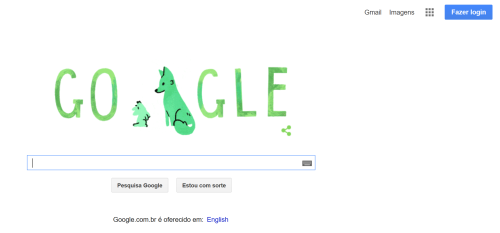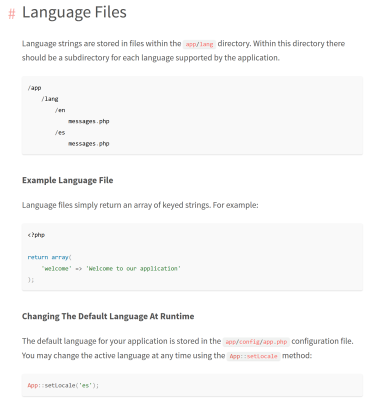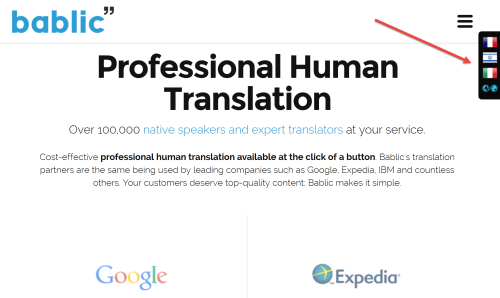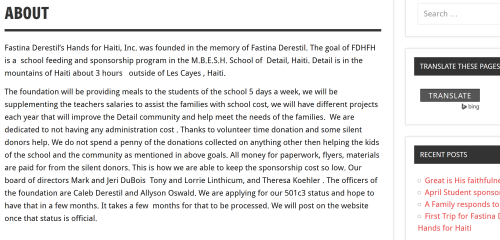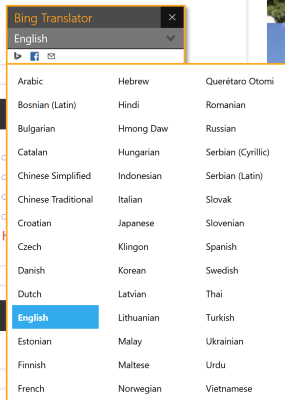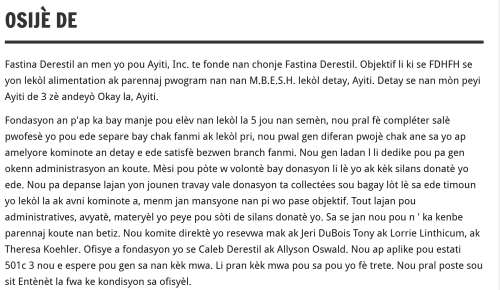I was asked to cover two topics at our next Web Professionals meeting on September 8, 2015. The first dealt with a continued discussion of security. The second dealt with the issue of internationalization. Since I don’t know if there will be sufficient time to cover both topics, I thought I would put together a weblog post on the topic of internationalization. First, there is some terminology to be aware of on this topic. You may see internationalization shortened to i18n (there are 20 letters in the word, after all). There is also the concept of localization (also known as l10n). You may also encounter the term globalization (g11n). The simple fact is that not everyone in the world speaks (and reads) English. And even if they do, there is U.S. English, U.K. English, Australian English and so forth. For example, is the word color or colour? Let’s look a bit deeper into what all this really means.
First, I just returned from São Paulo, Brazil (or is it Brasil)? While there, I used a search engine (I know, hard to believe, isn’t it). Here is what I saw when I typed in http://google.com. Note the site was immediately redirected to a different site (and the site initially appeared in Portuguese. First, the site redirected to http://google.com.br (I was in a different country, after all). The site also gave me the choice of viewing the page in English (see the link in the screen capture below).
Essentially, one needs to have some means of managing what your site looks like in different locations on the globe. Most individuals are proud of the country where they live (and expect a top level domain to point to their specific country). This is why there is a .com.br in many of the sites I examined while in Brazil. If you plan to do business in the UK, it is a really good idea to own the .com.uk domain for your company. It just lends a better sense that you are aware of location (and increases trust).
Of course, this also means you need to have multi-lingual support for your site. Yes, you could code a series of pages (and many frameworks support this approach). For example, if you are working with the PHP Laravel framework, you will find a page describing the overall process. [That link is for Laravel 4.2]. For those who did not follow the link, here is a bit of a screen capture.
This works great until you realize the number of languages available. Of course, there must be alternate approaches. Yes, one approach is to hire someone to do all the heavy lifting for you (after all, it is important that someone who knows the language thoroughly should review your translated content).
One approach is Bablic (there are others). You essentially pay for this service. It is reasonably priced and they do have a large number of professionals who review the translations. For example, if you visit their site, you will have the ability to translate their pages immediately into other languages. Note the arrow in the screen capture below.
For those who do not wish to pay (or do not have the budget and need a quick translation, one can use services like MS Translate or Google Translate. You can even apply these to a website. For example, there is a WordPress plugin for Google Translate (yes, there seems to be a plugin for everything these days). If you are curious about how this works, here is a couple of screen captures for a site I developed for individuals in Haiti some time ago. In this case I used the Bing Translator plugin (yes, there are alternatives).
Here are some of the language options for the Bing Translator.
If you choose Haitian Creole as the translation option, here is what the same about page looks like.
Of course, this is an automated translation (which is not without problems). First, it is a computer doing the translation so one often misses language nuances. However, the translation is reasonable for someone who just needs the basics.
Yes, there are alternatives and this topic can get quite complex quickly. I just wanted to provide an overview to start the discussion. I look forward to your comments (and particularly look forward to comments from current and former CMWEB students).
